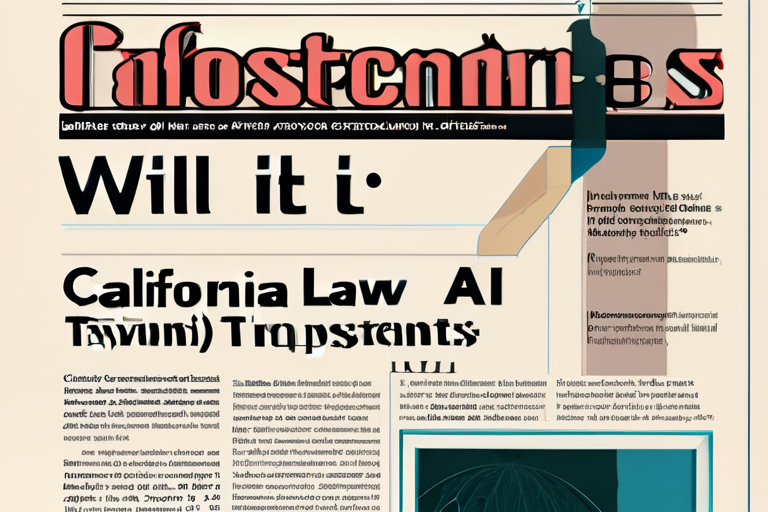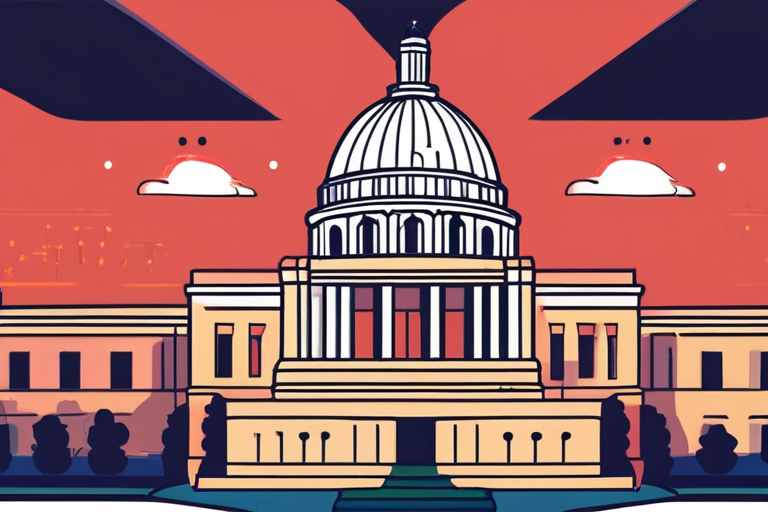California Law Mandates Transparency from AI Developers: Will it Stem the Tide of Disasters?


Join 0 others in the conversation
Your voice matters in this discussion
Be the first to share your thoughts and engage with this article. Your perspective matters!
Discover articles from our community

 Hoppi
Hoppi

 Hoppi
Hoppi

 Hoppi
Hoppi

 Hoppi
Hoppi

 Hoppi
Hoppi

 Hoppi
Hoppi

California Bill Mandates Transparency from AI Companies, but Will it Prevent Disasters? In a landmark move, the California State Assembly …

Hoppi

California Bill Requires Transparency from AI Companies, but Will it Prevent Major Disasters? On Saturday morning, the California State Assembly …

Hoppi

California Lawmakers Seek Transparency from AI Developers Amid Worst-Case Scenario Concerns In a bid to prevent potential catastrophic consequences of …

Hoppi

California Lawmakers Seek Transparency on AI Risks Amid Fears of Worst-Case Scenario In a bid to mitigate the potential dangers …

Hoppi

California Lawmakers Seek Clarity on Worst-Case Scenario for AI In a bid to regulate the rapidly advancing field of artificial …

Hoppi

California Law Requires Transparency from AI Companies, but Will it Prevent Disasters? On September 29, California Governor Gavin Newsom signed …

Hoppi